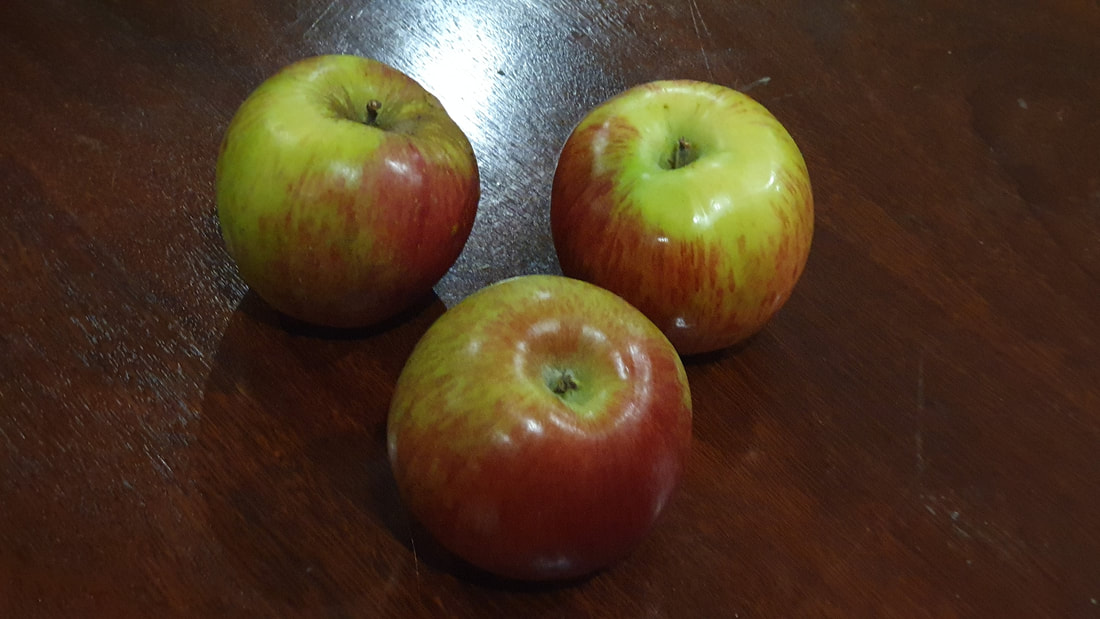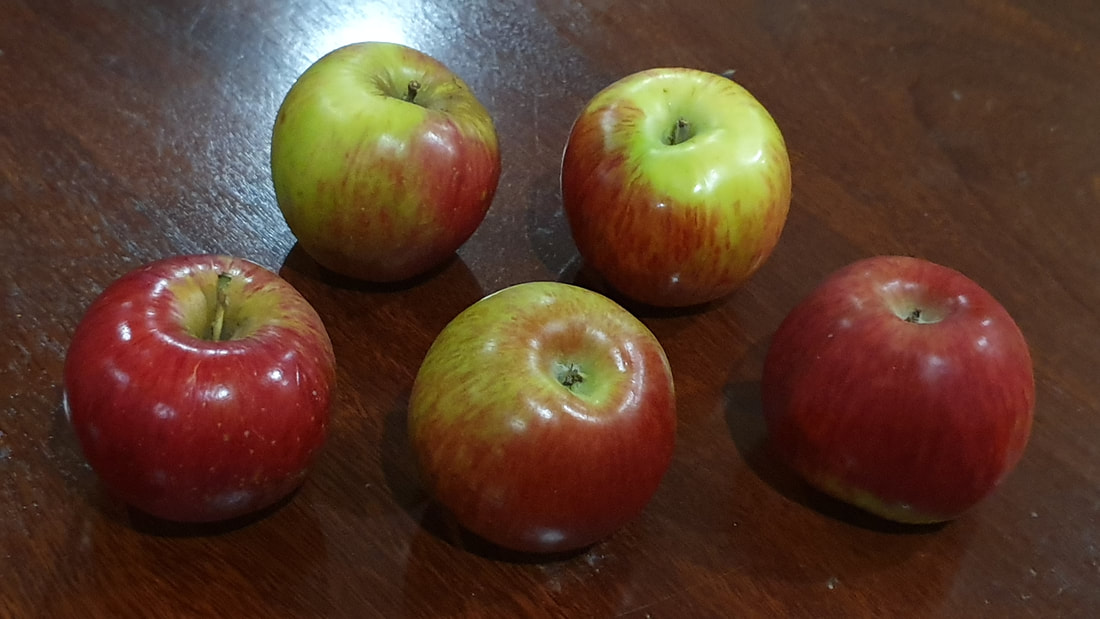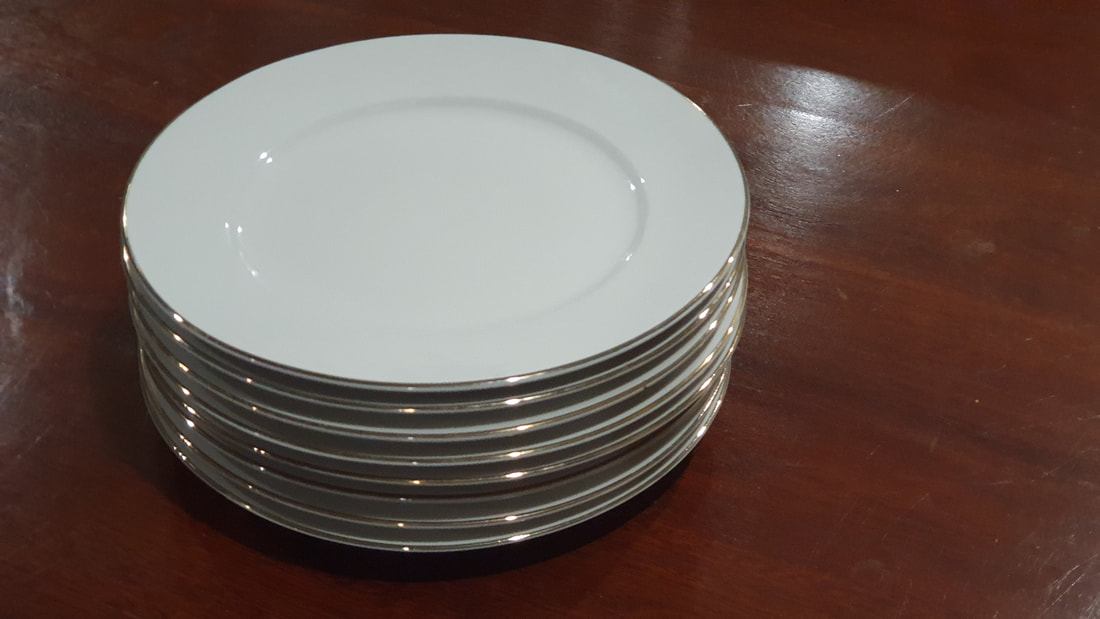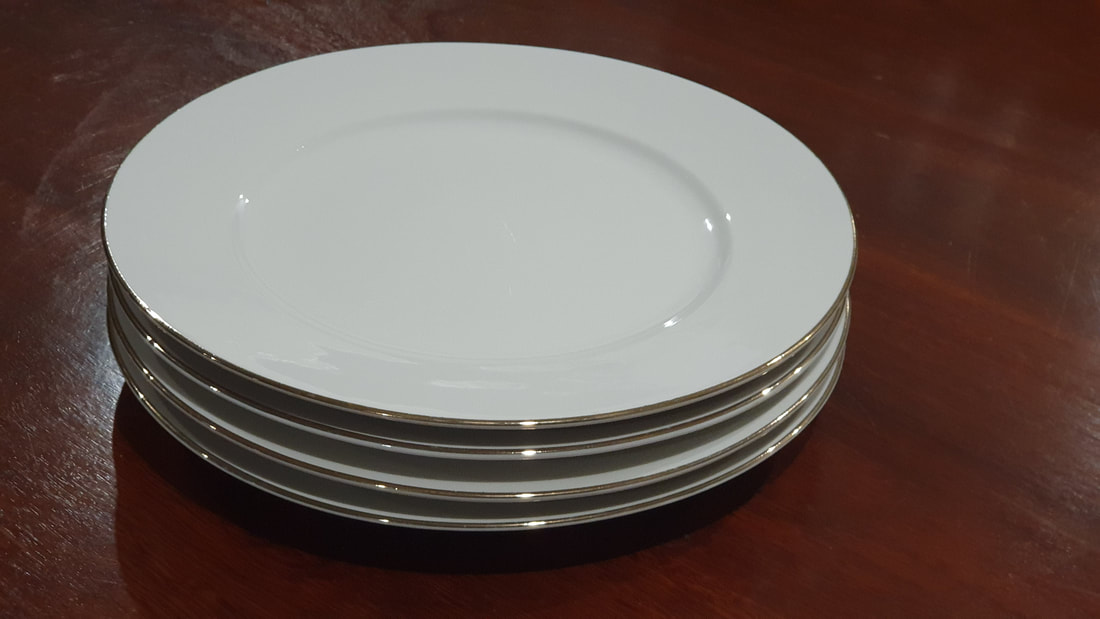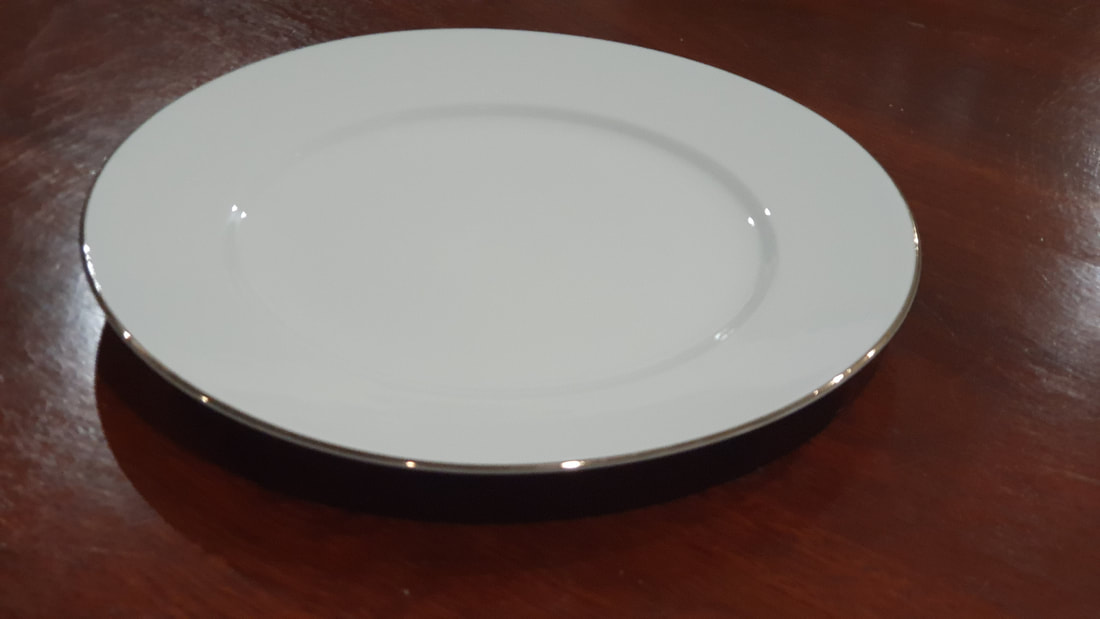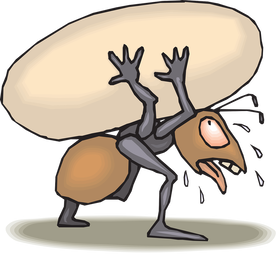Croatian grammar #009The number of subjects and the verb ‘biti’
So 'je' = 'is', and 'su' = 'are'?......... Think again!
Read on only if and when you are ready to concentrate. This might be tough going. And I am still trying to get my head around it.
A conversation with a friend who is also learning Croatian ….
Joyce: Hey Bob, how do you say in Croatian “The apples are on the table”? Bob: You know that … “Jabuke su na stolu”. Joyce: Yes, of course. Well how is it that in this Croatian book it says “Sedam jabuka je na stolu”. Je? Like …. “Seven apples is on the table”!? Bob: That doesn’t make sense! Joyce: No, it doesn’t. Aha! I see they have got it right later on .. “Dvije žene su u kući.” Bob: Well I guess they made a mistake with “Sedam jabuka je na stolu”.. Don’t worry … All textbooks have typo errors.
The next day ....
Bob: Joyce, I have checked with our teacher Mateja, and she tells me that your book was absolutely correct!
Joyce: Huh? How can that be? Where is the logic? Bob: Mateja tells me that we have to stop looking at Croatian grammar through English-speaking eyes (if you know what I mean). We have our rules, and Croatians have theirs. I guess that what you said about the use of je and su doesn’t seem strange or illogical to them? Let me summarise what Mateja told me about how the form of the verb biti depends on the number of items or people that are the subject of a sentence. This will be a bit text-booky, but here goes ………
When we have just one item:
Obviously (if anything can be taken for granted in the Croatian language) …. One apple is on the table. = Jedna jabuka je na stolu.
When there are two, three, four items:
As we English speakers would expect: Two apples are on the table. = Dvije jabuke su na stolu. Three apples are on the table. = Tri jabuke su na stolu. and …. Four apples are on the table. = Četiri jabuke su na stolu.
Joyce: Well yes, of course.
Bob: But wait! Sit down and prepare yourself ….
When the number of items is 5, 6, 7, 8, 9, 10, ….. Get ready for it ….
Five apples are on the table. = Pet jabuka je na stolu. Six apples are on the table. = Šest jabuka je na stolu. Ten apples are on the table. = Deset jabuka je na stolu.
Tri jabuke su na stolu. Pet jabuka je na stolu.
Joyce: Strange language, Croatian! Bob: Let me finish .....
For all compound numbers that end in 2, 3, or 4 (except 12, 13, and 14) the form of the verb biti that we use is su – the same as with 2, 3, or 4 on their own. For example:
53 apples are on the table. = 53 jabuke su na stolu. 1034 apples are on the table. = 1034 jabuke su na stolu. And the same goes for masculine and neuter nouns. 82 trees are in the field. = 82 stabla su na polju.
And for all compound numbers ending with 5, 6, 7, 8, 9, or 0 (as well as 12, 13, and 14) we use je. For example:
13 apples are on the table. = 13 jabuka je na stolu. 55 apples are on the table. = 55 jabuka je na stolu. 1035 apples are on the table. = 1035 jabuka je na stolu.
Joyce: And what if we don’t specify the number of apples at all?
Bob: Then things are “as they ought to be”. As we said at the start of this conversation .... The apples are on the table. = Jabuke su na stolu. Joyce: Wow! I think I’ve got it. Don’t think like an English speaker, Joyce. Bob: No, and when you are learning Croatian, don’t think like an English speaker, Bob. Joyce: Well, that’s only in the present tense. What about in the past tense? Bob: Then the mysteries really begin! Let me give you what Mateja has told me (Again, a bit text-booky ....) and then we can go figure …
When there is only one item (or person), things are as we would expect – in all three genders:
Muški rod: One plate was on the table. = Jedan tanjur je bio na stolu. Ženski rod: One apple was on the table. = Jedna jabuka je bila na stolu. Srednji rod: One child was in the room. = Jedno dijete je bilo u sobi.
When there are 2, 3, or 4 items, or compound numbers ending with 2, 3, or 4 (except 12, 13, and 14), the form of the verb biti is su – again, as we would expect in the plural.
Furthermore, for feminine or neuter subjects, the past participle is unsurprising: Ženski rod: Three apples were on the table. = Tri jabuke su bile na stolu. Srednji rod: Four cinemas were in that street. = Četiri kina su bila u toj ulici. But what is surprising (like everything else in this venture of learning Croatian) is that with masculine subjects, the past tense of biti is the same as for neuter subjects: Muški rod: Two plates were on the table. = Dva tanjura su bila na stolu.
Joyce: And not su bili! My goodness!! Well at least I guess that is the end of the surprises!
Bob: Oh no, no, no! The best is last:
Things are even more surprising when there are 5, 6, 7, 8, or 9 items, or compound numbers ending with 5, 6, 7, 8, 9, or 0 (as well as 12, 13, or 14): the verb takes the form je bilo, regardless of whether masculine, feminine or neuter gender:
Muški rod: 17 plates were on the table. = 17 tanjura je bilo na stolu. Ženski rod: 20 books were on the shelf. = 20 knjiga je bilo na polici. Srednji rod: 645 trees were in the field. = 645 stabala je bilo u polju.
Na početku, osam tanjura je bilo na stolu.
Kasnije, četiri tanjura su bila na stolu. Konačno, samo jedan tanjur je bio na stolu. Bob: Go figure, Joyce .... I need a rest! Joyce: I suppose it’s logical enough, and simple enough - if I can get out of my English-speaking mode, and try not to compare the languages in every sense. My knowledge of English is interfering with learning Croatian! I think I will un-learn my English!
Learning Croatian is so demanding if you keep on thinking in English!
Getting around
You can browse or search this website in the following ways:
AHA! Learning Croatian with Bob
Correspondence: bobby.bucat@gmail.com
4 Comments
Jako
12/6/2020 09:50:02
Hi again,
Reply
Thanks for making contact again, Jako. I'm not sure what your are asking me .... Give me a specific question, and I will pass it on to Mateja.
Reply
Jako
13/6/2020 03:39:26
Grammar 09 The number of subjects and the verb biti. Only for Present Tense
Reply
First, there's one subtle point. With 2, 3, 4 there are special forms of adjectives
Reply
Leave a Reply. |
